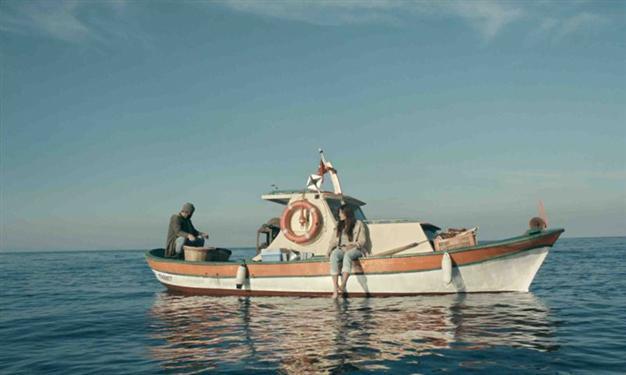Movie tackles the effects of population exchange
EMRAH GÜLER

The film ‘Evdeki Yabancılar’ takes the idyllic Aegean town of Karaburun, located over a cape stretching toward Greece off İzmir, as its setting.
The “Mübadele,” or the 1923 population exchange between Turkey and Greece, is turning out to be a rite of passage for new Turkish filmmakers. The mutual expulsion of communities from both countries to join coreligionists on the other sides of the Aegean Sea resulted in the uprooting of more than 1 million Anatolian Greeks and half a million Muslims in Greece.
The wounds, which remain fresh for many, continue to be an inspiration to storytellers, especially to those who have listened to stories of people forced to become refugees, and for many, stories from their own relatives. This week’s new release, “Evdeki Yabancılar” (Strangers in the House), brings together two young directors who have grown up with stories of the population exchange in their homes.
Dilek Keser and Ulaş Güneş Kacargil reprise their co-directing roles in their debut feature following their short “Domino.” The film was screened in last year’s Antalya Golden Orange Film Festival for the National Competition. Kacargil, who is also the screenwriter, told film enthusiasts at a press conference at the time that he had “grown up listening to the stories of the population exchange,” while Keser had said she was “a third-generation refugee” and that they were “interested in how political decisions reflect on people individually.”
The film takes the idyllic Aegean town of Karaburun, located over a cape stretching toward Greece off İzmir, as its setting. It’s the 1990s, and the strangers in the title are two Greek women and a Turkish man whose lives intersect in the house in the title. Melpo Zarakosta’s Agapi, a Greek woman who has had to leave her home in the coastal town decades ago, comes back with her granddaughter, Elpida (Romy Vasiliadis), to reclaim her past. The house that was hers is now occupied by a young Turkish man, Yaşar (Fatih Al). So begins the story that revolves around the trio clutching to the house.
Reclaiming the pastAs put forth by one of the directors, Keser, the film chooses not to dabble so much in the political, but focus more on the relationships among the three characters. The directors chose not to make the population exchange a central focus of the story, but it comes out as a lack of direction, ultimately weakening the story.
The population exchange is hardly mentioned throughout the movie, hence transforming Agapi from an old woman trying to recapture her past into someone who has lost her sense of reality as she tries to take a stranger’s house. As grandmother and granddaughter wander around a stranger’s house, most of the times aimlessly, the film becomes a cautionary tale not on the trials of history but of clashing characters.
What makes the film tick is Keser and Kacargil’s skillful capturing of the Aegean town, its beauty and its spirit. From the very first minutes, you get the feeling that this is a place where the filmmakers feel at home. This feeling of ease occasionally reflects on the characters, and otherwise stilted scenes flow naturally. Türksoy Gölebeyi’s cinematography also takes the credit here.
The chemistry is there as well, especially among the two younger characters who fall for one another. Al’s understated acting and Zarakosta’s skillful take on a woman trying to bridge her past with her final days raise the bar as well, although her Turkish, at times, sounds too mechanic and memorized.
Many will make comparisons to another summer release, Selim Evci’s “Rüzgarlar” (Winds), where a similar picturesque town, the Aegean island of Gökçeada, was the backdrop for a story on the haunting effects of the population exchange on the present day. “Rüzgarlar” was a braver and more in-your-face exploration of a darker corner of history, and deserves more credit for making the subject matter the backbone of the story as opposed to serving as a footnote in “Evdeki Yabancılar.” Regardless, the film holds the promise of a successful future for two great directors.
